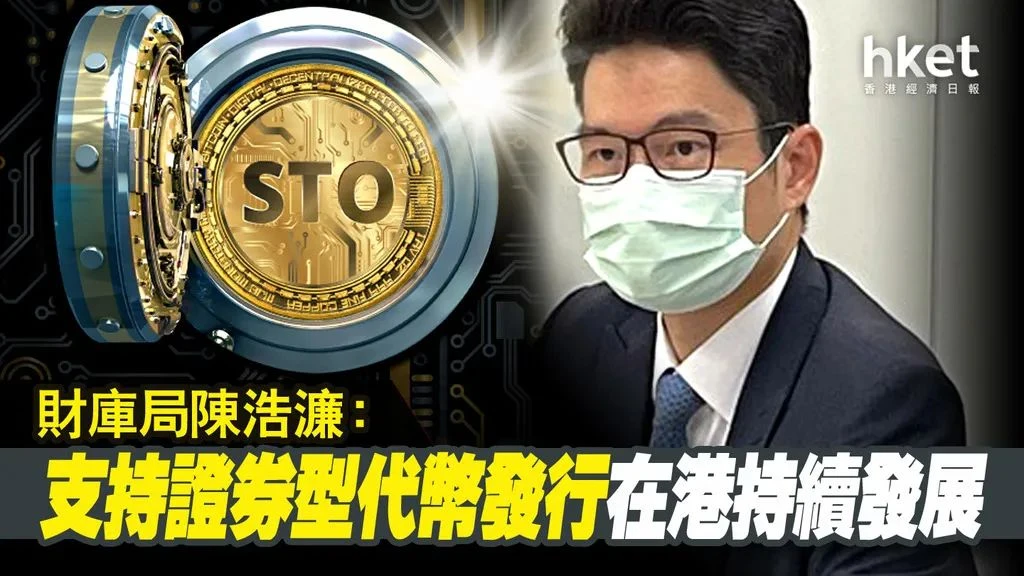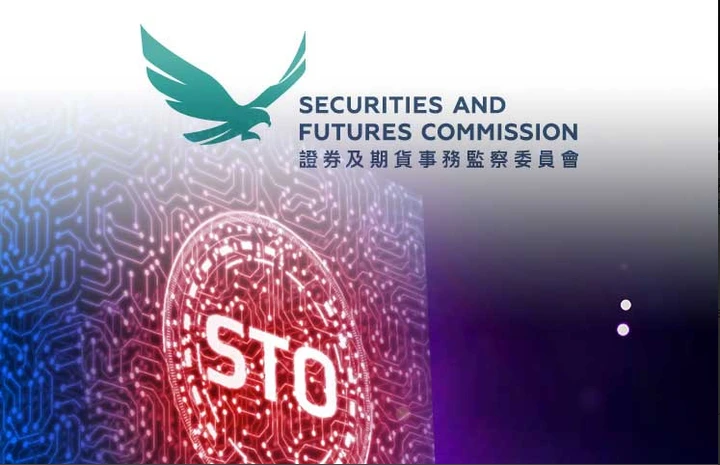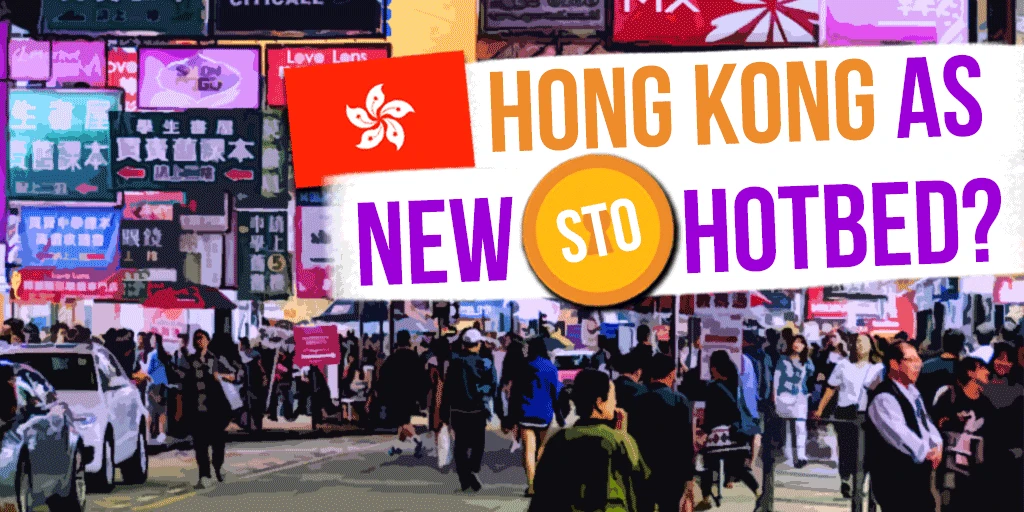Recently, the Securities and Futures Commission of Hong Kong issued a circular providing regulatory guidance for the development of "tokenized securities" in Hong Kong. Tokenized securities are a narrow branch of STO (Security Token Offering), which is essentially traditional securities. However, after being tokenized and issued on the chain, they can bring higher transparency, lower circulation costs, and potential staking returns.
Being the first to explore STO in the form of "tokenized securities" is more suitable for the early stage when regulation is not perfect and risks cannot be fully controlled. As the industry continues to mature, it is expected that there will be more tokenized asset classes. Institutions predict that the scale of STO in Hong Kong is expected to reach trillions of US dollars in the future.
Compared to the early days of ICOs (Initial Coin Offerings), STOs must be regulated by relevant securities institutions and securities laws and regulations. They can be seen as a "compliant-level ICO" with controllable risks. Furthermore, the threshold and difficulty of STO issuance are lower than IPOs, which will significantly improve fundraising efficiency and financial market vitality.
STOs Can Be Issued

After allowing licensed virtual asset exchanges to operate in Hong Kong, the pace of embracing financial innovation has not stopped. Around STO, Hong Kong regulators and practitioners have quickly taken action to unleash the potential of the traditional securities industry using tokenization technology.
According to the circulars issued by the Securities and Futures Commission of Hong Kong on "Recognized Investment Products for Tokenized Securities" and "Activities of Intermediaries in Tokenized Securities," the regulation framework for "tokenized securities" adopts the traditional securities market framework. The mandatory requirement of "limited to professional investors" has been removed, opening the door for retail investors to subscribe to tokenized securities and laying the groundwork for market expansion.
After the issuance of these circulars, the enthusiasm of Hong Kong financial practitioners for the STO industry has surged. Several Hong Kong securities firms have begun to handle or provide advice on tokenized securities, and fund managers are also exploring the issuance and distribution of tokenized funds, managing investments in tokenized securities.
Currently, several compliant-level STO cases have emerged in Hong Kong, but due to risk considerations, they are still limited to professional investors. Among them, Taikoo Capital initiated an STO for a real estate fund targeting professional investors, used to acquire five retail properties in the tourist hotspot of Prince Edward in Kowloon. Investors holding tokens can receive rental income generated by the properties each year. High Peak Technology launched an STO platform specifically for securities issuers and professional investors, specializing in the initial issuance and distribution of STOs. Kelvin Leung, Director of Financial Services at InvestHK, believes that this is an important milestone, as tokenizing real-world assets is one of the best opportunities in the digital asset field.
STOs Can Be Invested

Although the mandatory requirement of "limited to professional investors" for tokenized securities has been lifted, the introduction of DLT (such as blockchain technology) with tokenized securities has increased potential technological risks, and regulatory authorities remain cautious. Currently, there are no STO products in Hong Kong that retail investors can participate in.
To address the risk challenges, the Securities and Futures Commission explicitly requires intermediaries to manage new risks unrelated to traditional securities, especially ownership risks and technological risks associated with tokenization activities, such as forking, blockchain network interruptions, and network security risks. STO practitioners should also have professional expertise to conduct due diligence on products using tokenization technology, understand new technological risk prevention measures, custody arrangements for tokenized securities, and safeguards against hacking.
Traditional securities firms lack sufficient technical reserves for this professional knowledge, and some institutions have begun to urgently recruit blockchain talent to address the development trends of STO. In this regard, newly licensed compliant virtual asset exchanges in Hong Kong have a unique advantage. They can meet compliance requirements and have a better understanding of "token" related technologies and risks from the ground up.
It is understood that several licensed or pending virtual asset exchanges in Hong Kong have launched STO-related layouts. HKbitEX, the exchange under Taikoo Capital that launched the real estate fund STO, is on the pending list.
Another pending platform, VDX, is also monitoring the progress of STO. The head of the exchange explained that although tokenized securities are essentially securities, how to tokenize securities for on-chain circulation and manage assets properly is a completely new business for traditional institutions, involving many technical details, including code audits of smart contracts, security of DLT networks, interoperability between backend systems of participating parties, and prevention of hacking and theft risks. "These are processes we are very familiar with, but they may pose a challenge for traditional securities firms."
The Future of STO

Despite the uncertainty of risks, the Securities and Futures Commission of Hong Kong believes that tokenization will bring some potential benefits to the financial market, especially in improving efficiency, increasing transparency, shortening settlement times, and reducing costs for traditional financial industries.
Strictly speaking, tokenized securities are only an early cautious exploration of regulation in Hong Kong. Since its essence is still traditional securities, conceptually, it is only a narrow branch of STO. A comprehensive understanding of STO (Security Token Offering) includes financial assets and rights, not only tokenized traditional securities, but also gold, real estate investment trusts, data assets, and dividend rights in blockchain systems (such as native tokens). Therefore, the market size of STO is larger than that of tokenized securities.
STO is also a branch of RWA (Real World Asset Tokenization). In addition to securities and financial products such as stocks and bonds, the asset categories in RWA also include real estate, automobiles, wine, luxury goods, precious metals, and more. Tokenizing low-liquidity assets with value in the real world can significantly improve liquidity and financing efficiency.
A report jointly released by Boston Consulting Group (BCG) and ADDX in 2022 predicts that asset tokenization will grow 50 times by 2030, with a market size of up to $16.1 trillion.
In the era of tokenization, the potential for a trillion-dollar market in the STO and RWA markets has already emerged, and Hong Kong's forward-looking policies provide local enterprises with early opportunities for layout. This will be a historic opportunity for traditional securities brokerage firms and emerging compliant virtual asset exchanges.
免责声明:本文章仅代表作者个人观点,不代表本平台的立场和观点。本文章仅供信息分享,不构成对任何人的任何投资建议。用户与作者之间的任何争议,与本平台无关。如网页中刊载的文章或图片涉及侵权,请提供相关的权利证明和身份证明发送邮件到support@aicoin.com,本平台相关工作人员将会进行核查。




